When most parts of the north western region of India was afflicted with communal orgy during the pre-partition days around 1947, the neighbouring state of Jammu & Kashmir witnessed no ripples of any communal tension. It provided a solace to Mahatma Gandhi, who wrote in his autobiography, "I see a ray of hope in Jammu & Kashmir." Kashmir had been an epitome of peace and communal harmony for centuries. From the days of the Mughals, Kashmir was called 'Paradise on Earth'. It was indeed a paradise with its natural beauty, Sufi culture and communal amity. It was possibly the safest place in India with very low crime rate. It was a common sight until the 1980s to see ladies walking back home late night on the streets of Srinagar without any fear.
Unfortunately, the erstwhile 'Paradise on Earth' has turned into a cauldron for the last nearly three decades. A whole generation of youth has grown up in militancy- torn surrounding with a negative impact on their mindset. The blame for such a situation in Kashmir has to be apportioned by both India and Pakistan for their acts of omissions and commissions. India needs to introspect why it has not been able to win over the hearts and minds of the people of Kashmir during the last nearly seven decades. More importantly, Pakistan can not escape the responsibility of exploiting the Kashmiris with promises of liberation and also by relentlessly sponsoring terrorism in the state.
Various initiatives in the past, be it Shimla Agreement (1972), Lahore Declaration (1999), Agra Summit (2001), series of CBMs initiated by PM Vajpayee (2003), Eid-Ul-Fitr LoC Ceasefire by Pakistan (2003) or the Joint Press Conference by PM Vajpayee and President Musharraf in Islamabad (2004) with Musharraf assuring that "he will not permit any territory under Pakistan's control to be used to support terrorism in any manner" have been exercises in near futility. Every time there is any significant initiative towards a dialogue process for normalisation of relationship, an act of aggression or major terrorist attack sponsored directly or indirectly by Pakistan, follows as a spoiler : be it Kargil (1999), Parliament attack (2001), Mumbai attack (2008) or the recent Pathankot attack (2016).
In this context it may be relevant to mention that in his book, 'India vs Pakistan : Why Can't we Just Be Friends', Husain Haqqani, former Pakistani Ambassador to USA, has observed that space for India and Pakistan friendship is shrinking and that Pakistan's policy on Kashmir has been 'plebiscite or nothing'. It is an apt description of Pakistan's recalcitrant attitude of not letting the dialogue process for normalisation of relationship move forward, notwithstanding PM Nawaz Sharif's (and PM Modi’s) initiatives in positive direction.
As far as the issue of plebiscite in J&K is concerned, it needs to be appreciated, indeed recognized, by Pakistan that the UN Resolution of April 22, 1948, being under Chapter VI of the UN Charter, is only advisory and has no mandatory enforceability. Besides, it lost its relevance long back, having been excluded from the 'Annual List of Unresolved International Disputes' under the observation of UN Security Council. It may also be noted that, in way, the UN Resolution had long time back been superseded by the Shimla Accord and even former President Gen. Musharraf too had acknowledged this reality. And if one were to extend this argument further, Pakistan’s continuing demand for discussion on the ‘Core’ issue of Kashmir as part of the ‘Comprehensive Dialogue’ mechanism, does not gel with the UN Resolution formulation. As such, repeated efforts of Pakistan to raise this issue in the UN are simply infructuous. Is Pakistan willing to start at the very beginning by vacating the illegally captured territories? Will it also ask the Chinese to move out of the vast areas it has surrendered to them?
It is high time Pakistani rulers realized that plebiscite is a non-issue and a non-starter now. Not only India, but all the saner voices in the world are deeply concerned with the issue of terrorism and not the UN Resolutions. Any country, which is perpetrator and promoter of terrorism, is in a non-defensible position today. Most western countries are convinced about India having been a victim of Pak sponsored terrorism. On the issue of Terrorism in general, and 26/11 Mumbai attack and Pathankot attack, in particular, India is getting greater and growing support from the western world, including USA . Pakistan is getting increasingly marginalised.
On the issue of terrorism inflicted on India from across the borders, the major problem is Pakistan's being persistently in denial mode. Notwithstanding the plethora of substantive evidence given to them in the 26/11 Mumbai attack as also in the recent Pathankot incident, Pakistan remains in denial. As regards the 26/11 terror attacks, the role of Pakistan, once again, stands fully exposed in Husain Haqqani's book. The author recounts the visit by the then ISI Chief Gen. Shuja Pasha to Washington on December 24/25, 2008, during which he made startling revelations relating to 26/11 terrorist attacks. Haqqani mentions that Gen. Pasha admitted to him (Amb. Haqqani) that the planners of the 26/11 attacks were 'our people' but was not 'our operation'. Pasha is also reported to have told the CIA Chief Gen. Michael Hayden that ‘retired’ military officers and ‘retired’ intelligence officers had been involved in the planning of the operation. The fact that Pakistan has never pursued the evidence against the accused (officers) in the 26/11 case despite all the material provided, not just by India but also the American National Security Adviser, including intercepts of conversations during the attacks, point an accusing finger on the Pakistani Govt.
Despite Pakistan's attitude in dealing with India-specific terror groups and it’s persistent denial mode, PM Modi initiated significant pro-active gestures to mend fences with Pakistan. His first initiative was to invite PM Nawaz Sharif to his swearing in ceremony (May, 2014), which was warmly reciprocated by the Pak PM, disregarding opposition in certain quarters in Pakistan, particularly the Army. This was followed by a series of positive initiatives namely, meeting between the two Prime Ministers at Ufa (Jan, 2015) and Paris (Nov, 2015), meeting of two NSAs at Bangkok (Dec, 2015) and visit of Indian Foreign Minister Sushma Swaraj to Pakistan (Dec, 2015). To cap it all, PM Modi took every one by surprise by his historic visit to Lahore on December 25, 2015 to greet PM Nawaz Sharif on his birthday and bless his grand daughter, who was getting married. This visit received huge appreciation in both countries and silenced even Pak baiters in India and India baiters in Pakistan. A new bondage with silver lining in the relationship between the two countries loomed large on the horizon. The bonhomie was such that even the Pathankot attack, which followed immediately thereafter, did not affect the resolve of PM Modi to continue with his policy of remaining engaged in a meaningful manner. The reaction on both sides, particularly India, was measured and mature. In an unprecedented gesture, India allowed the Joint Investigation Team (JIT) from Pakistan to visit Delhi and Pathankot in the last week of March, 2016 showcasing an example of cooperative spirit between the two neighbours in pursuing cases of cross border terrorism. The JIT was handed over sufficient evidence; including names, addresses and weapons etc.
This was despite the fact that the Indian NSA Mr. Doval had personally ensured that all available material and leads were shared with the Pakistani investigators.
All that was now required of them was to build on the leads since all evidences on the conspiracy, preparations and execution of the attack lay within Pakistan.
However, all these efforts seem to have got mired with Pakistan once again getting into denial mood. There is no official feed back yet from Pakistan on the visit of JIT team to India and there is uncertainty about reciprocal visit of India's NIA team to Pakistan. Significantly, Pakistan has even refused to accept the dead bodies of the 4 Pakistani terrorists killed in Pathankot and only recently, as per media reports, these were buried locally after observing the religious rites. Pakistan's reluctance to reciprocal visit of NIA team to Pakistan is apparently on account of their apprehension of likely request of Indian investigators to question the master mind of the Pathankot attack, Jaish-e-Muhammad's Masood Azhar. Fairly vocal criticism of PM Nawaz Sharif government's move to send a JIT to India has started surfacing. Nawaz Sharif's critics see it as an implicit acceptance of role of Pakistani elements in the terror attack. The prospects of any positive development on the dialogue process has got further mired with Nawaz Sharif's position getting weaker following reports on Panama scandal.
The ball is now in the Pakistani court, more in Rawalpindi than in Islamabad, to take a call on the fate of the dialogue process. To sum up, it has to be appreciated that during the last two years, both the Prime Ministers have invested a great deal of political capital in initiating bold moves like never before, towards normalisation of relationship between the two countries. The tempo seems to have run out of steam with Nawaz Sharif getting weaker and his detractors gaining upper hand in Pakistan. As far as India is concerned, considering the ‘stab in the back’ in Pathankot, it would be exceedingly difficult for PM Modi to make any fresh overture towards Pakistan until India receives some positive response/signals from Pakistan, particularly on the Pathankot investigations and how Pakistan wants to deal with the likes of Masood Azhar, Hafiz Sayeed and Lakhvi to name a few.
(Author is former Special Secretary, Intelligence Bureau, Director General CISF and Member, National Disaster Management Authority)
Published Date: 15th June 2016, Image Source: http://www.newindianexpress.com
(Disclaimer: The views and opinions expressed in this article are those of the author and do not necessarily reflect the official policy or position of the Vivekananda International Foundation)


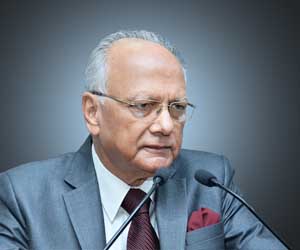
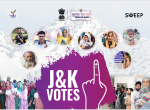

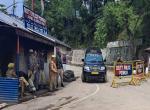
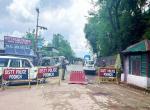
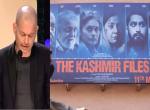
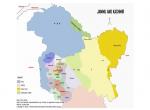

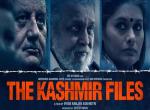
Post new comment